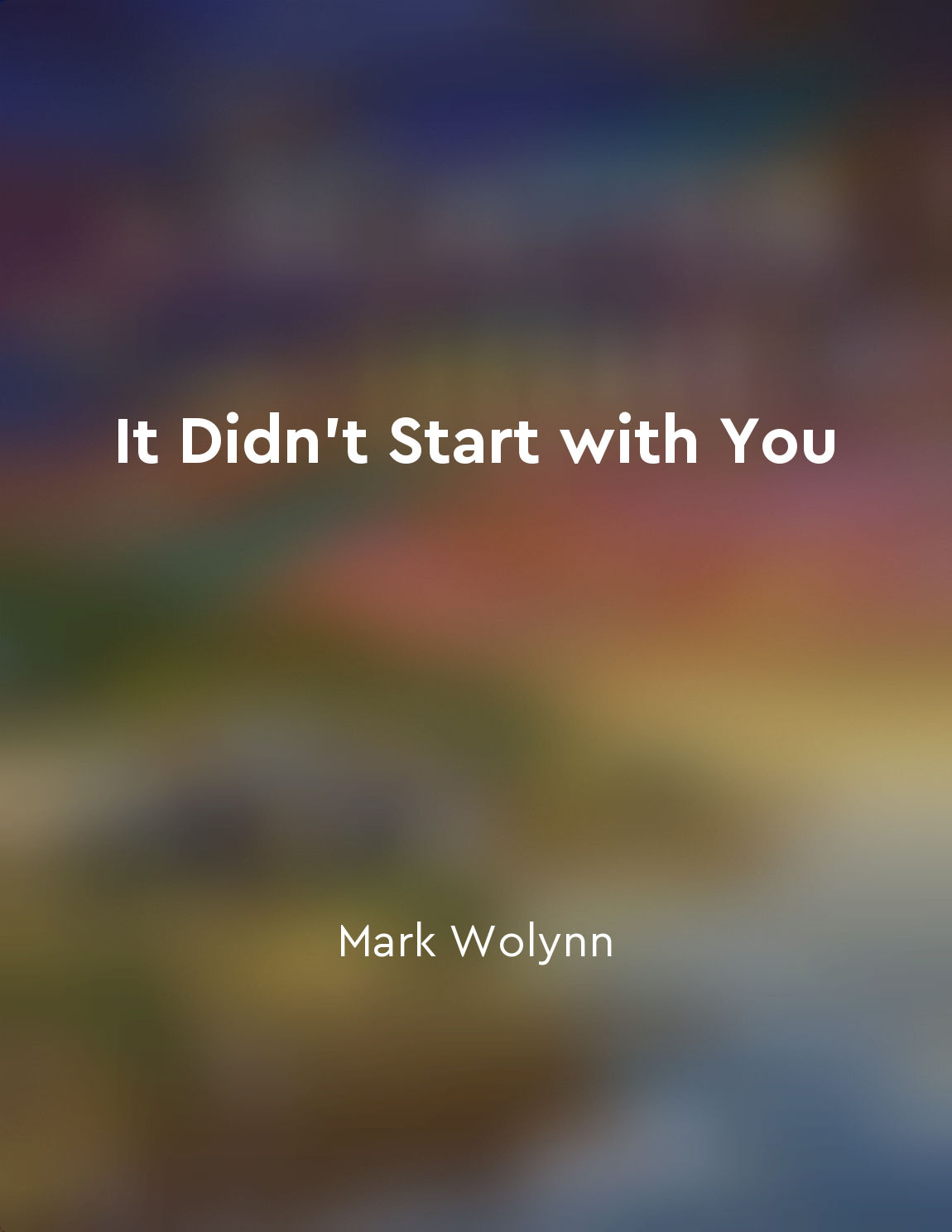Ancestral healing can break generational cycles from "summary" of It Didn't Start with You by Mark Wolynn
Ancestral healing offers us the opportunity to break generational cycles that may be holding us back. We often inherit more than just physical traits from our ancestors; we can also inherit their emotional wounds and traumas. These unresolved issues can manifest in our own lives as chronic pain, anxiety, depression, or relationship problems. By healing these inherited wounds, we can prevent them from being passed down to future generations. One way ancestral healing can break generational cycles is by helping us uncover and release the unconscious loyalties we may have to our ancestors. These loyalties can keep us stuck in patterns that are not serving us, simply because we feel a deep sense of obligation to our family lineage. By becoming aware of these loyalties and understanding where they come from, we can start to untangle ourselves from the past and create a new path forward. Another way ancestral healing can break generational cycles is by allowing us to process and release the emotions that have been passed down to us. Emotions such as grief, anger, or shame can become trapped in our bodies and continue to affect us long after the original event occurred. Through techniques such as visualization, meditation, or therapy, we can learn to acknowledge and release these emotions, freeing ourselves from their grip. When we engage in ancestral healing, we are not only helping ourselves but also our descendants. By breaking the cycle of inherited trauma, we are creating a healthier legacy for future generations. Our healing journey can have a ripple effect, positively impacting our children, grandchildren, and beyond.- Ancestral healing is about reclaiming our power and rewriting our family story. It is about acknowledging the past while also creating a new future. By doing the work to heal our ancestral wounds, we can pave the way for a more peaceful, joyous, and fulfilling life for ourselves and those who come after us.


